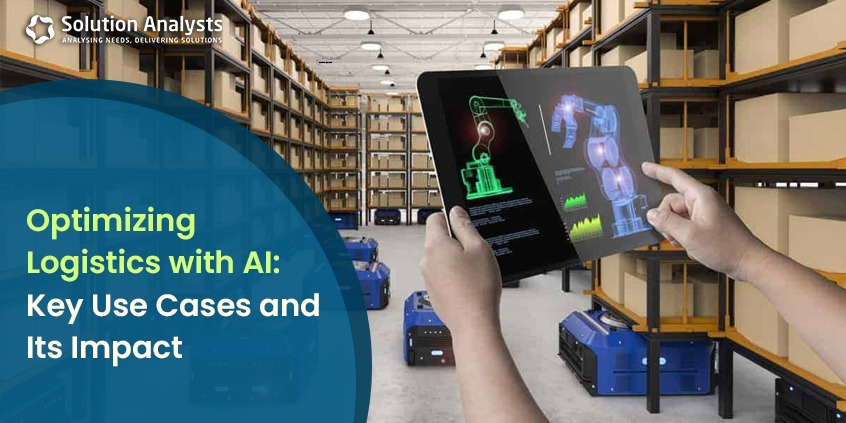
Table of Contents
The logistics industry has always been at the forefront of technological innovation, with companies constantly seeking new ways to improve efficiency and reduce costs. As consumer expectations continue to rise, logistics companies are under increasing pressure to deliver faster, more reliable, and more convenient services. However, with integration of AI in logistics, many industry-specific challenges can be solved with real-time visibility into their supply chain operations. As a result, logistics companies can efficiently optimize every step of the delivery process with AI.
According to All the Research, the Global Artificial Intelligence (AI) in Logistics and Supply Chain Market Ecosystem is expected to reach USD 12 Bn in 2027, with a CAGR of 24%.
Let’s move forward and explore the important use cases of AI in the logistics industry that help in understanding how this technology is being implemented and the benefits it brings.
Why AI in Logistics Industry is Important
AI is becoming increasingly crucial in logistics owing to its ability to improve the efficiency, accuracy, and speed of supply chain operations.
Here are some benefits of IoT in transportation and logistics sector.
- Increased efficiency: AI can automate many tasks which reduce the need for manual labor and boosts the speed and accuracy of supply chain operations.
- Improved decision-making: AI can analyze vast amounts of data and provide insights that can help logistics companies make more informed decisions.
- Cost reduction: AI in logistics and transportation plays a crucial role by reducing shipping and inventory costs as it optimizes routes and minimizes stock-out risk.
- Enhanced customer experience: AI-powered chatbots and virtual assistants can provide real-time support, answer questions, and resolve issues quickly and efficiently, improving the customer experience.
- Better security: AI can analyze data and identify potential security risks in real time, helping logistics companies to prevent cargo theft and other security breaches.
- Improved sustainability: By optimizing routes and reducing fuel consumption, AI can help logistics companies reduce their carbon footprint and contribute to a more sustainable future.
Now, let’s find out 5 key use cases for AI in logistics and its impact on the industry.
Top Use Case of AI in Logistics
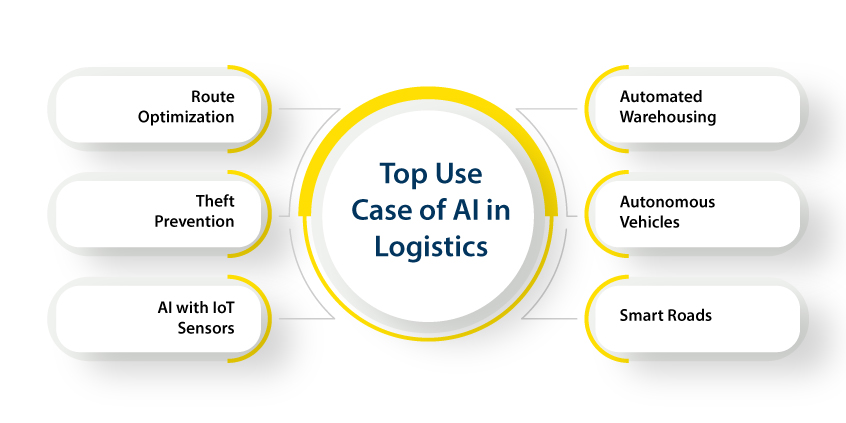
- Automated Warehousing
Intelligent automation is the most valuable benefit of AI for the logistics sector.
Artificial intelligence can automate warehouse tasks, enabling industry professionals to prevent repetitive and potentially hazardous responsibilities while improving the overall speed and accuracy of warehouse operations.
The integration of artificial intelligence automation in smart warehouses facilitates productivity and implementation of tasks constantly. Otherwise, various warehouse tasks would have been challenging and costly to achieve through human labor without AI support.
Furthermore, AI revolutionizes some of the core tasks of warehouses such as collection and analysis and inventory processing, which improve efficiency and profitability.
Smart warehouses often rely on computer vision technology to recognize and classify objects, and this same could be eventually used for quality control management. Moreover, AI solutions can connect multiple warehouses within a supply chain to optimize the movement of goods.
- Autonomous Vehicles
AI in logistics and supply chain has a significant impact on the overall industry. It can modify supply chains and reduce costs. Apart from autonomous vehicles, AI allows the automation of various other transportation modes such as trucks, carriers, and buses for seamless and rapid transport of goods.
Autonomous vehicles have the ability to function either on their own or with human assistance. However, in many countries, drivers are required to be present in the car to maintain complete control over the road and detect potential hazards. While this regulation may be revised in the future, it remains in effect at present.
The implementation of autonomous technology in logistics can offer numerous benefits. For instance, the utilization of self-driving vehicles can reduce fuel consumption, streamline routing, and eliminate human errors.
- Smart Roads
In addition to self-driving vehicles, there is a variety of scope in logistics app development. Many organisations are developing roadways equipped with solar panels and LED lights that offer a wide variety of advantages to the logistics industry.
Roads equipped with solar panels or colored lights can generate electricity or signal-changing road conditions, respectively. Moreover, the ability to heat the solar panels is an added benefit that prevents slippery roads during winter.
The benefits mentioned above prove that smart roads hold significant value in the logistics industry. As a result of adverse weather conditions, there are no delays in the supply chain
- Route Optimization
Logistics companies require timely and cost-effective delivery, as poor management can lead to heavy expenses. Artificial intelligence can analyze all relevant data related to freight transport, including weather conditions, traffic congestion, and vehicle speed limits, to identify the optimal route for quick delivery in real-time.
Moreover, utilizing shorter routes can have positive environmental benefits as it reduces vehicle emissions and prevents the release of harmful particles.
- Theft Prevention
AI plays a crucial role in ensuring the security of logistics operations.
By accessing relevant data such as the most common hotspots for theft, the types of goods that are frequently stolen, and the time of day when thefts occur most frequently, MI algorithms can analyze this information to notify logistics companies of potential theft risks in real-time, and recommend safer alternative routes.
Analyzing innumerable real and simulated images of thefts, AI can provide timely alerts and help prevent cargo theft, which is a significant problem affecting both consumers and businesses.
As a result, AI-powered security alerts have become essential for Logistics App Development Company to maintain the smooth operation of their supply chains while safeguarding their cargo from theft.
- AI with IoT Sensors
Companies can gain a comprehensive view of their operations with the combination of AI and IoT sensors.
IoT sensors can track crucial information such as the shipment status of each product, the condition of equipment and machinery, and the temperature of facilities, providing managers with insights into the efficiency and condition of their supply chain operations.
AI technologies with IoT data help in analyzing and providing valuable suggestions to the logistics operation.
For instance, AI systems can estimate when maintenance will be required to prevent machinery downtime by gathering data from IoT sensors on equipment load and weather conditions.
By leveraging IoT sensors and AI technologies together, companies can optimize their operations and enhance the reliability and productivity of their supply chains.
Wrapping Up
In conclusion, AI is revolutionizing the logistics industry by streamlining operations, increasing efficiency, and improving customer satisfaction. With its ability to process vast amounts of data, analyze patterns, and predict outcomes, AI allows logistics companies to optimize their supply chains, reduce costs, and enhance the overall delivery experience.
Solution Analysts is one of the leading Artificial Intelligence App Development Services to make business operations more efficient by accomplishing goals quickly, resulting in long-term sustainable growth.





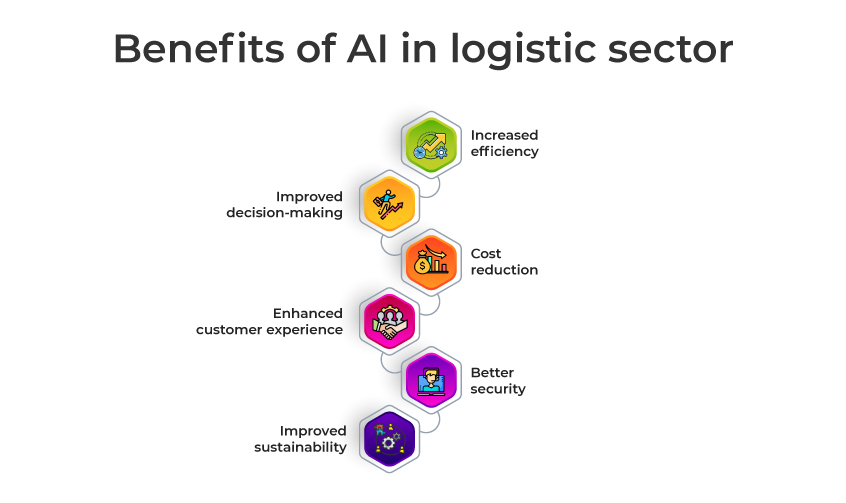


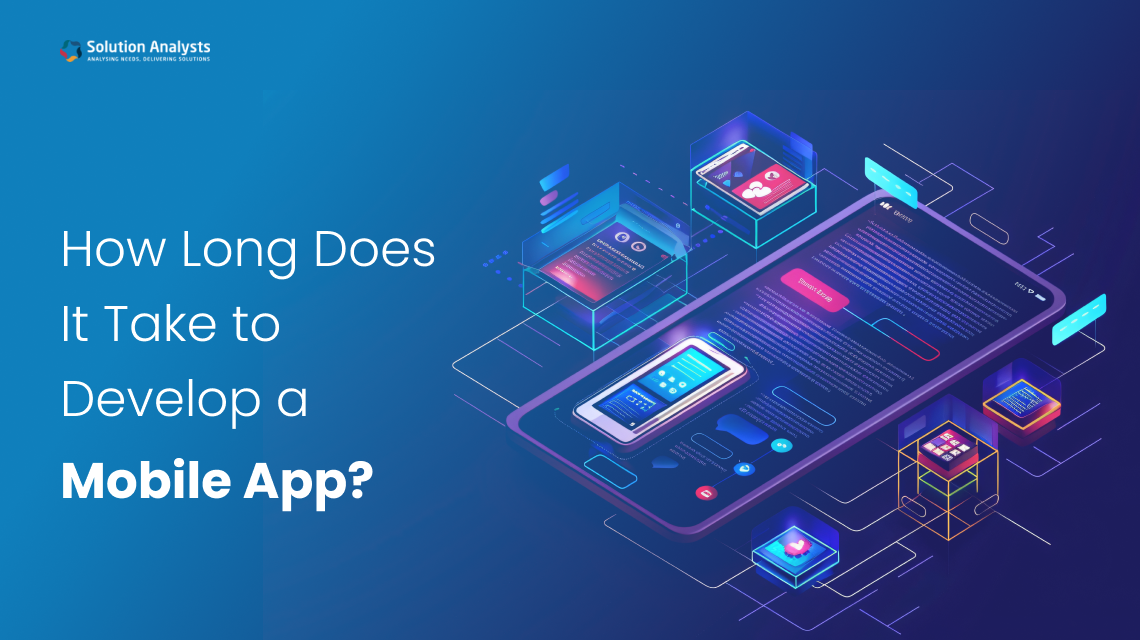

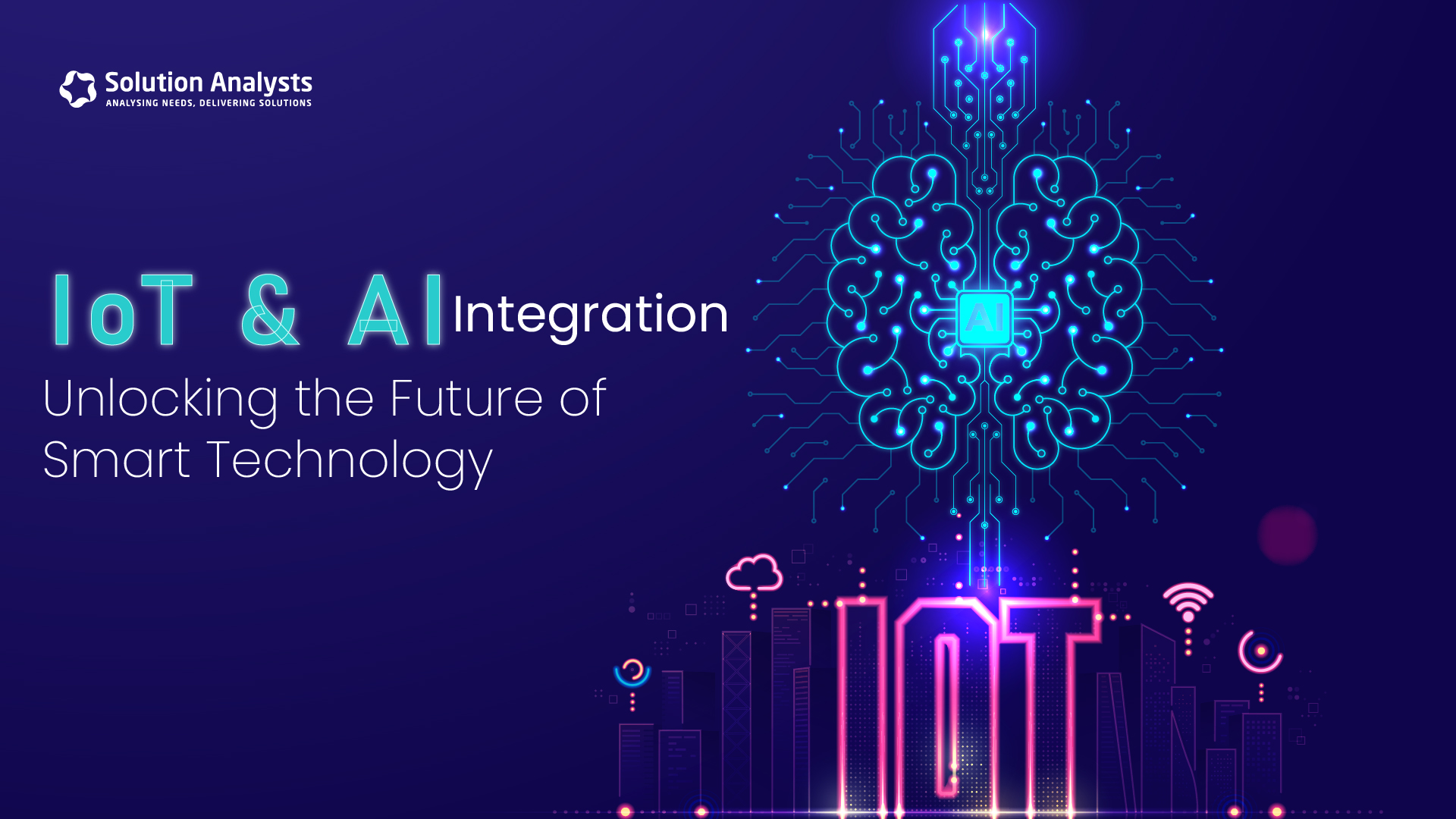
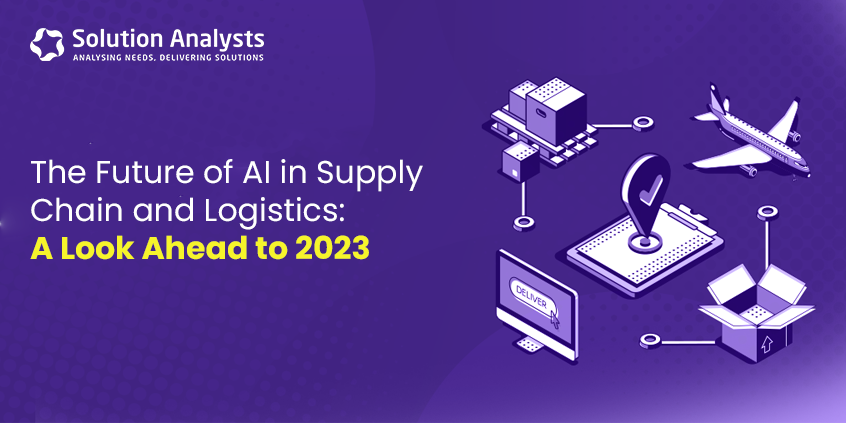
 sales@solutionanalysts.com
sales@solutionanalysts.com biz.solutionanalysts
biz.solutionanalysts






